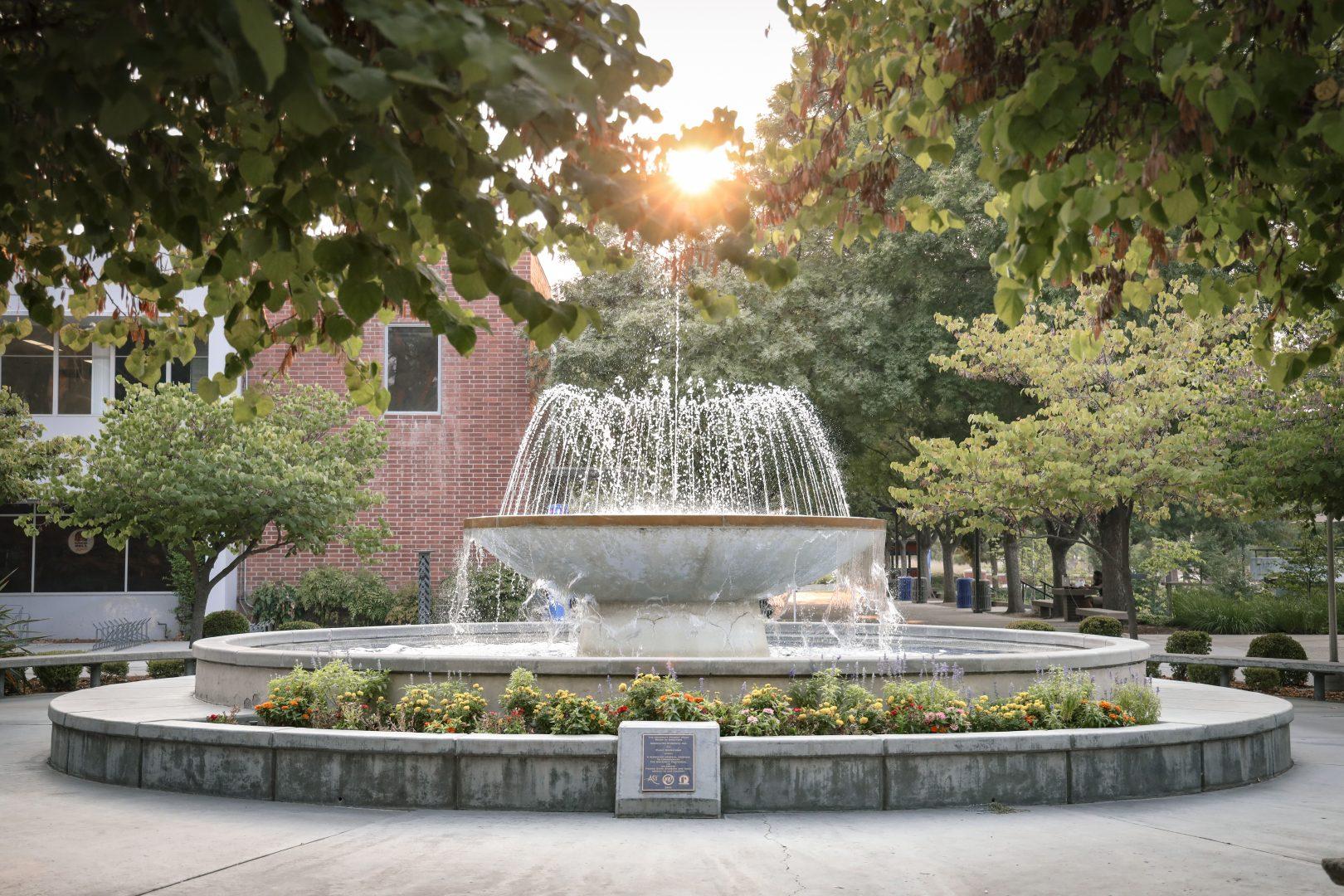On March, 12, 2020, then-Fresno State President Dr. Joseph I. Castro said the university will be suspending in-person classes until April 27 due to concerns related to COVID-19. At the time, there was only one confirmed case of COVID-19 in Fresno County.
The following week, the campus was deserted as students were thinking about what was going to happen next. As several universities announced they were closing for the entire semester, Fresno State announced a similar decision on Tuesday, March 16.
Now as one year of virtual instruction has passed, the pandemic has swept through Fresno County and the U.S. As of March 24, 2021, there have been 98,362 COVID-19 cases and 1,571 deaths in Fresno County. Over 500,000 people have died from the virus thus far in the country.
Higher education has been reshaped as colleges like Fresno State have had to move to virtual instruction. Students like Sierra Wigington and Josephine Henderson spoke about the struggles and fears they had balancing work with online classes.
Professors like Katherine Fobear and Shane Moreman spoke about translating their classrooms to a virtual format, and Fresno State Athletics employees like Frank Pucher and Taylor Martinez talked about what happened when college sports were at a standstill. Here are their stories:
“I just had to straight up tell the professor like I’m just not going to do some of those assignments, and that’s just going to have to be the way it is,” — Fresno State graduate student Sierra Wigington
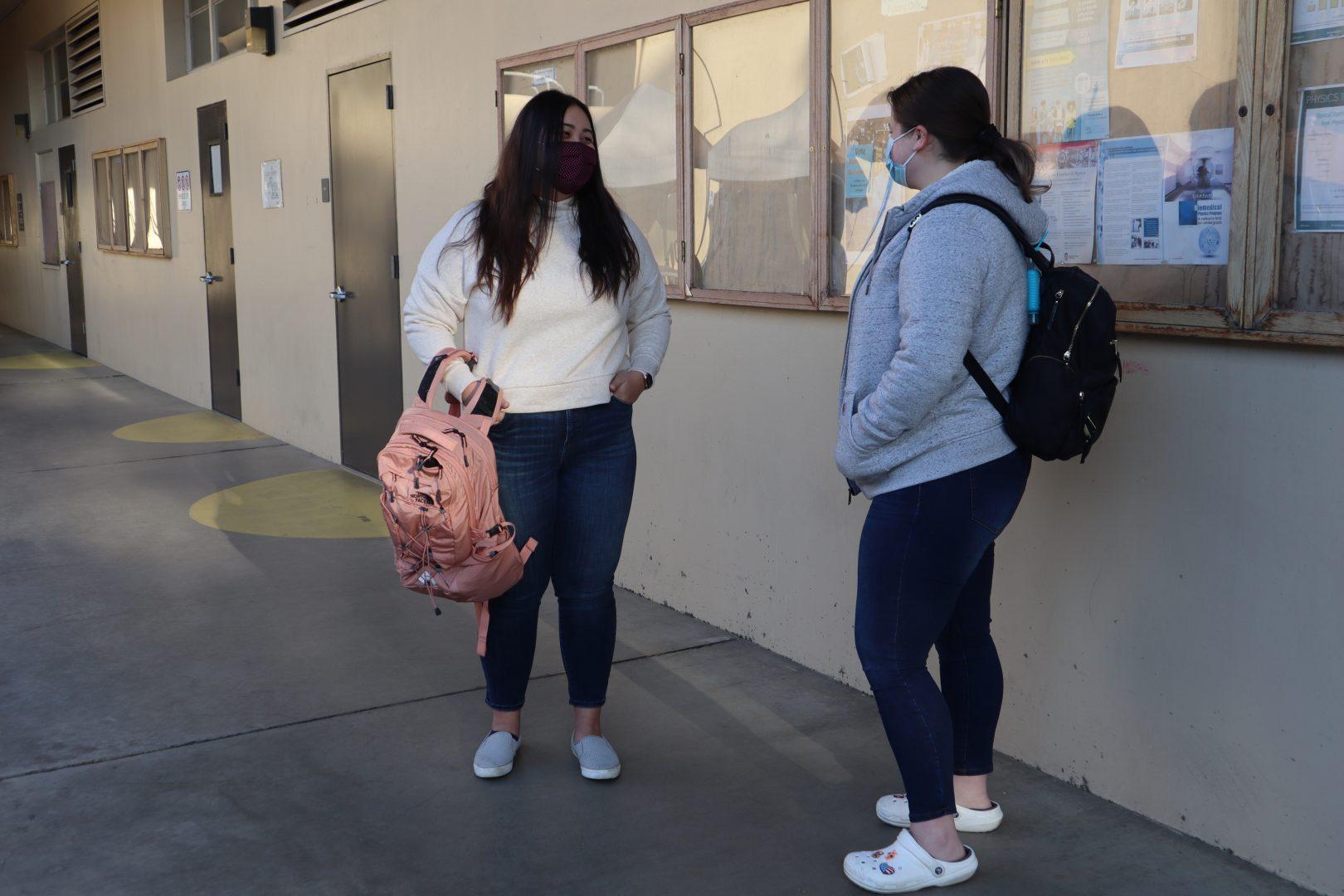
Sierra Wigington, a graduate student in Fresno State’s social work program, is finishing her final semester with the university after being on campus for seven years.
When she first heard the news that all classes were moving online, she found it disheartening.
“It’s just not my ideal way of learning. I work a lot better when I have people right next to me keeping me accountable,” Wigington said.
She said balancing this past year of online learning while working as a server in a retirement community had her feeling emotionally drained, particularly due to the extreme level of caution that had to be taken when caring for people most vulnerable to COVID-19.
There were times where she found herself missing multiple deadlines.
“I just had to straight up tell the professor like I’m just not going to do some of those assignments, and that’s just going to have to be the way it is,” Wigington said.
Though missing those deadlines was stressful, she said her professors were ultimately very understanding given the difficult times many were experiencing as a result of the pandemic.
Wigington said that finishing her master’s degree under these circumstances caused a sharp increase in anxiety.
She initially thought her final project would be achieved through conducting in-person interviews with caregivers at a nursing home.
While she was optimistic about her work on this project before the pandemic hit, she said that her optimism was replaced with fear and frustration as she found herself forced to figure out how to organize and conduct the interviews remotely.
“I looked forward to that, but then it was just, ‘Oh, we’re just doing Zoom. I hope you know how to navigate Zoom,’” she said.
In addition to this final project, Wigington said she was in the middle of an internship when COVID-19 first began and caused many things to shut down.
Engaging in the social work activities required by her internship was no longer possible.
Rather than having students in the program start over, Wigington said her department was kind enough to reduce the required number of hours from 300 to 150 in order to get the credit she needed to graduate.
She credited this as the reason she will still be able to finish school on time and considered it one of the few highlights in a year of great struggle.
With only two months left until the end of her final semester, Wigington said her level of stress has rendered her unable to celebrate at all.
While she’s sympathetic to students currently advocating for an in-person graduation ceremony, Wigington said she personally has no desire for one at this time.
“I’m at that point where I’m like, just give me the paper and give me the job. That’s all I need,” she said.
Wigington said she found herself distracted when she initially attempted to do her work in her living room next to family members who were playing video games.
She said she witnessed peers on Zoom who were also in noisy environments.
While she understands not everyone has the ability to always find a perfectly quiet space, she said doing the best she could to separate her school life from her personal life was the biggest key to her success in managing these past two semesters on limited energy.
“Being in front of the computer all day, learning about this job, taking classes, there’s not a lot of mental reserves left at the end of the day,” Wigington said.
— Trevor Widger
“I had somewhat of a sense of what works online and what doesn’t, but I didn’t have a sense of what works when you are having a pandemic,” — Fresno State professor Katherine Fobear.”
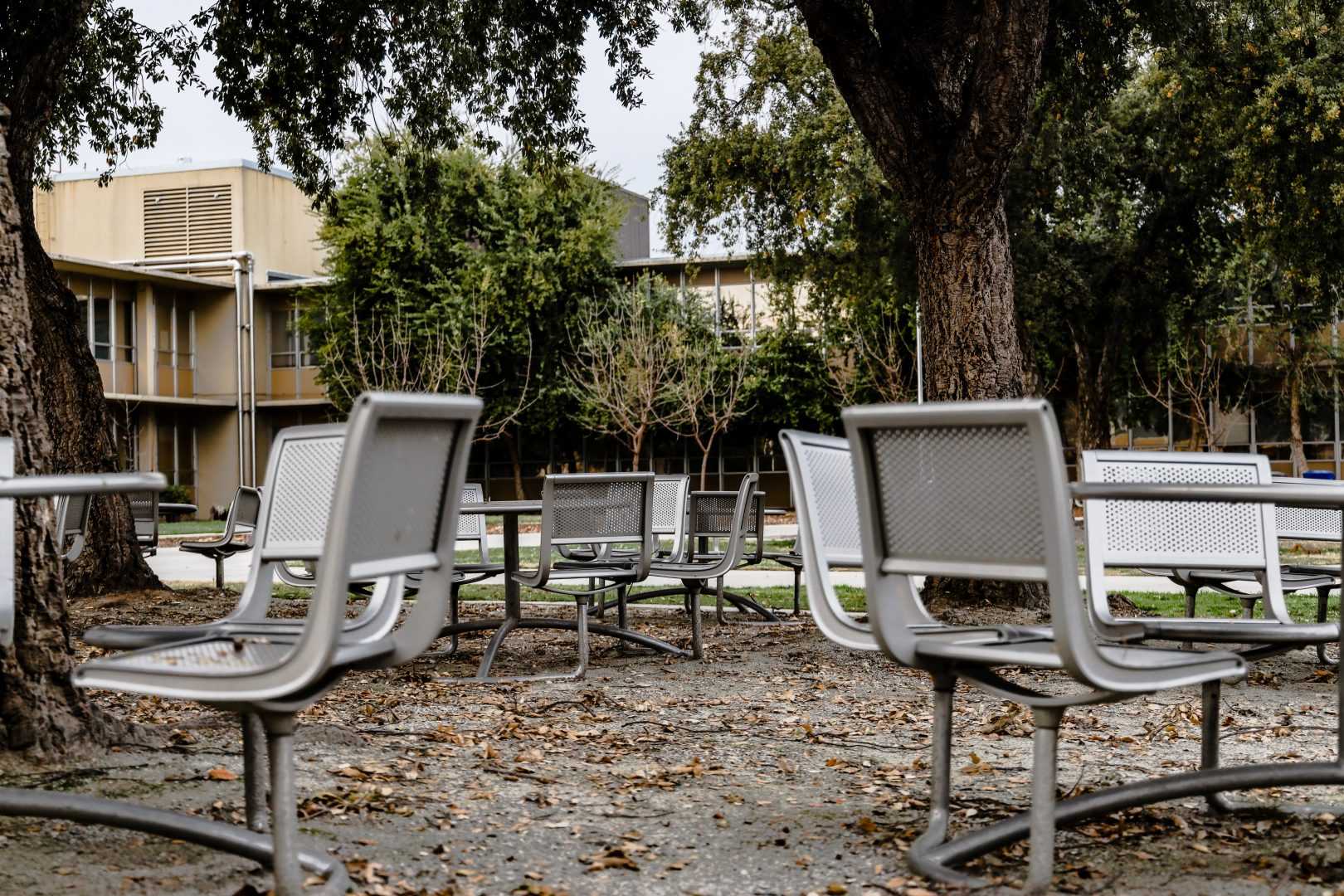
When the university shut down on Thursday, March 12, Fresno State professor Katherine Fobear was teaching her last class of the day when suddenly her phone began buzzing more often than normal.
Thinking that perhaps something had happened to a family member, she checked her phone to find out the campus was going to close.
Once the class finished for the day, Fobear broke the news to her students of the university closure and reminded them to take care of their health in light of the pandemic and uncertain times that lay ahead.
Fobear said that when she was walking to her car, she had felt as if she was in a state of shock, attempting to comprehend the gravity of the situation. She said this is a once-in-a-lifetime event.
Prior to the COVID-19 pandemic, Fobear kept busy with her four classes and the many community projects she and others in the women’s studies department participated in.
One such project involved a health survey for LGBTQ+ individuals in the Central Valley, which historically has not been documented, Fobear said.
“We were trying to understand healthcare barriers here and what’s going on into access to health care. What we’re planning on doing was to go to the local LGBTQ+ bars as well as other places to get people to fill out the survey beyond just social media,” Fobear said.
When the pandemic closed the country, it also ended the many projects she curated over the school year. The LGBTQ+ health survey, still in its infancy, ceased to continue with the project only having recorded a single survey from a local bar.
“We went to one bar then it got locked down. I was excited [for] the projects and classes I was in and all of that then full stop. That’s what happened in many ways,” she said.
Fobear, as well as the rest of the faculty on the Fresno State campus, had to reinvent teaching during the pandemic as COVID-19 posed unique challenges in teaching practicum that training couldn’t have prepared them for.
“I had somewhat of a sense of what works online and what doesn’t, but I didn’t have a sense of what works when you are having a pandemic,” Fobear said.
As a result of teaching in a virtual classroom, Fobear is having a difficult time gauging student feedback on assignments she normally would assign in person. With cameras not being a requirement for virtual classes, she is unsure whether or not students are grasping concepts or listening at all.
“It’s not just about teaching online. What happens in a physical classroom does not easily transfer into a virtual classroom,” she said.
Fobear recalled the ways in which the virtual classroom environment contributed to a decrease in informal communication that helped spur productivity amongst students and faculty.
“Prior to the shutdown, we were working really greatly. I really miss the informal interactions that really do not only build rapport with colleagues but also allow for things to happen,” Fobear said.
Fobear also expressed concerns about how the COVID-19 pandemic created an overly stressed student and faculty population contributing to further reducing performance across the university as a whole.
“It really changed how I do teaching because I’m dealing with a student body that is stressed. My students have had to learn with me in navigating through this,” Fobear said.
“What I’m learning is more about students’ health and about their capacity as to what they can take on in a classroom,” Fobear said.
In addition, Fobear said the pandemic exposed educational inequities as students and staff could no longer utilize university resources to the same capacity prior to the pandemic.
“Students don’t have equal access to things technically [that] the university can provide like a quiet study space,” she said.
In addition to university resources, Fobear recalled how students no longer found comfort in their own homes as a result of the pandemic. Coupled with responsibilities at home, jobs and schools, the pandemic further exacerbated an already stressed student population.
“Many of my students are taking care of loved ones … [or have] to be home sometimes in a hostile environment … I don’t think all of us were fully aware how much resources were needed going to be needed for our students,” Fobear said.
Fobear expressed concerns about how the pandemic caught everyone off guard as to how many resources are truly necessary for the success of the student population on the Fresno State campus.
“We have this diversity and we need to work harder to make sure that our campus reflects that and that we provide those services and that important structure. It’s not about accommodation it is about making the university equitable,” Fobear said.
— Edward Lopez
“It was the best of times; it was the worst of times.” — Fresno State professor Shane Moreman
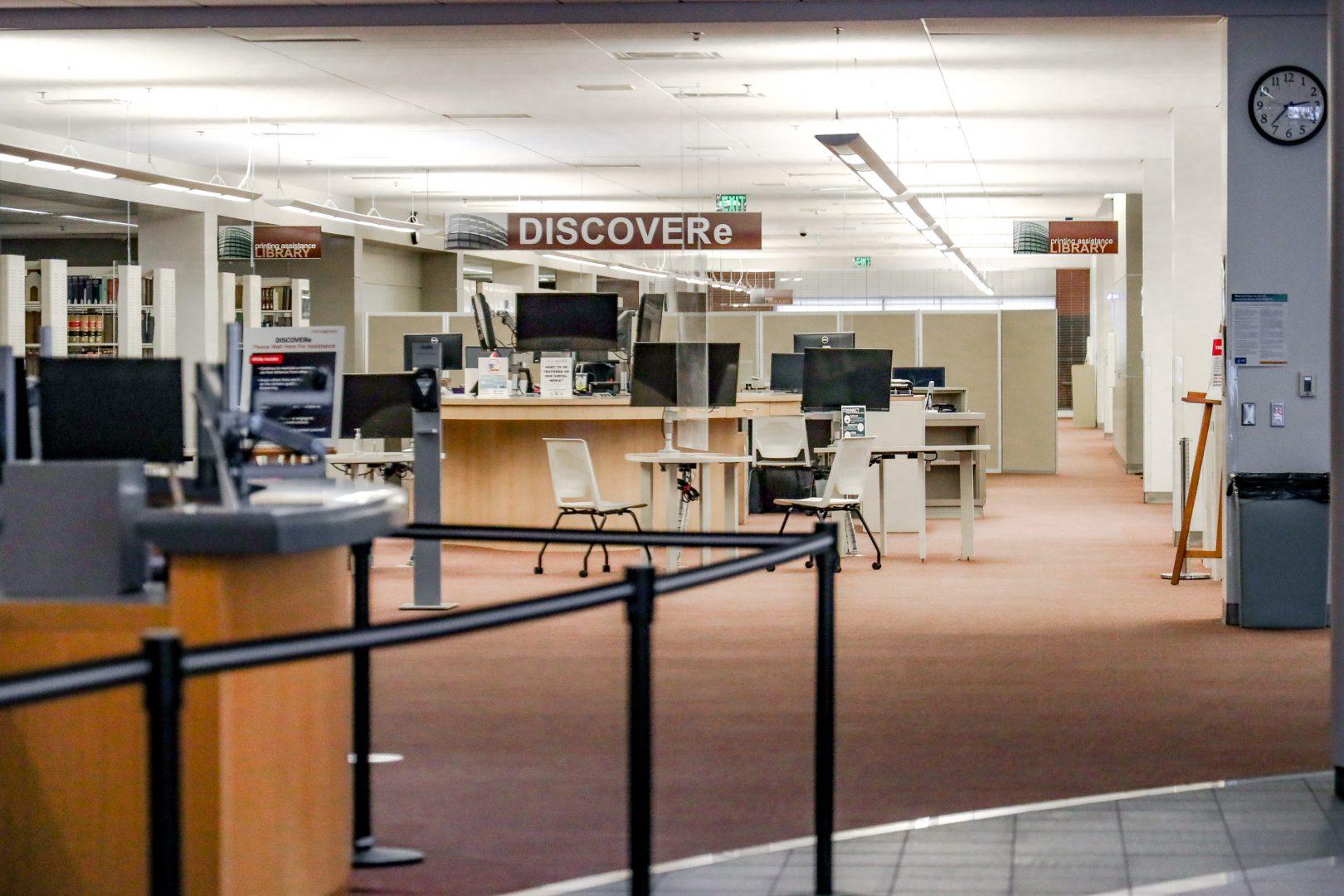
Fresno State communications professor Shane Moreman was concerned for the wellbeing of his students and others at Fresno State when the pandemic hit last year in March.
More often than not, Moreman was thinking of the worst case scenarios of students, as most were believed to be in poor mental health conditions attributed to the global pandemic and transition to online learning.
According to Moreman, the initial experience and transition to virtual learning was daunting and often overwhelming, not only for him as a professor but for his students as well.
“The initial experience was overwhelming,” Moreman said. “I was deeply concerned about the safety of the students. I was also concerned about what would happen to the students.”
Moreman also explained that the transition between instructional environments would best be compared to the classic Charles Dickens novel, “A Tale of Two Cities,” saying, “It was the best of times; it was the worst of times.” He said that this experience was both great and terrible in many ways, citing issues such as unstable internet connections, struggles with electricity and learning that student resources were depleting rather quickly.
According to Moreman, innovation during this time was key. Moreman said that the university provided him, as well as other professors, with training resources on how to instruct during the pandemic. It was during this time he made the choice to utilize his collective skills and implement what he knew into this new version of learning within a more digital space.
But even with resources being offered to Fresno State faculty, Moreman believes the university still has opportunities to address, citing things like the mental health of students and many others.
“I had students who dropped out of the classes because they just couldn’t handle the online courses and the current pandemic situation due to their mental health,” Moreman said. “I would direct them to the facilities that we had on campus, but that’s also part of the challenge. If someone doesn’t feel good, sometimes they don’t feel good enough to access help. I think the challenge is thinking of what ways that the university can be proactive and reach out to students on behalf of the students.”
According to Moreman, this can be a difficult time for professors as well, especially for those not as technologically inclined as their professional counterparts.
With that in mind, Moreman thought he would share some advice for those currently in his shoes at Fresno State and had the following to say:
“You have to embrace the amateur when you go into instruction so that you can get better and better and better at what it is that you do and what your talents are,” Moreman said. “Don’t go into this thinking that you’re going to break something, don’t go into this thinking that you have to be perfect.”
— Peter Lopez
“I don’t think anyone would have anticipated that 12 months later, we’d still be in this right.” — senior associate athletics director for external relations Frank Pucher

In March of 2020, Frank Pucher, senior associate athletics director for external relations, was eagerly waiting to see where the fate of the women’s basketball team’s postseason run would end up.
Instead, he kept on seeing the news of games being canceled. From college to professional sports, everything seemed to be shutting down. It was inevitable that the spread of COVID-19 would end up reaching Fresno State.
And on March 12, the NCAA suspended the rest of the spring competition.
When the COVID-19 case numbers started to grow, Pucher said one of the top priorities was to make sure student-athletes would remain safe.
“We’re always concerned for the well-being of our student-athletes and our coaches, and really our entire campus community,” Pucher said. “No one knew the seriousness of it, there were mixed reports on what was happening. You know, there’s probably a lot of fear and unknown out there for everyone in all walks of life, but the same ring true for us is the analytics of just trying to comprehend what this meant, what it is, how do we keep our people safe?”
A lot was pending for Fresno State athletics. The women’s basketball team was waiting to hear about a potential WNIT or March Madness appearance, five members of the wrestling team were set to compete in the NCAA championships and the softball team was ranked No. 23 in the country.
“The very first thing I think you do is you feel for the student-athletes. At that time, there was just so much unknown,” Pucher said. “I don’t think anyone would have anticipated that 12 months later, we’d still be in this right.”
No fans in Fresno State sporting events have been the biggest issue in terms of revenue. In August 2020, the Mountain West announced that there would not be a football season played in the fall, but the conference reversed the decision in late September. However, fans were still not allowed to attend Fresno State games.
“We all miss our fans, we have probably, if not the best one of the best in our conference,” Pucher said. “We’ve done the numbers, our soccer games, or softball games, you name it, within our conference peers or regional peers, we have as good of or better fan support than any of those programs.”
As a result, the program had to do some cost-saving majors. Women’s lacrosse, men’s tennis and wrestling will be cut at the end of the 2021 academic year. Fresno State Athletics expects an overall annual budget savings of approximately $2.5 million once all scholarships and other contractual obligations have been fulfilled.
In addition, Pucher said travel has been strategically scheduled for games on the west coast to save money. The athletic department also had to make some layoffs and furloughs.
“Our department, much like the university and society as a whole [has] experienced personnel things such as furloughs,” Pucher said. “The obvious is that we’ve experienced significant revenue loss, and we don’t have the ability to make revenue up because we can’t, we can’t in all these things.”
— Jesús Cano
“I would struggle with accomplishing even the simplest tasks. I would constantly feel emotionally drained, and I lacked the motivation to try and help myself get out of that rut,” — Fresno State student Josephine Henderson.

Josephine Henderson was a freshman agriculture business student when the COVID-19 pandemic hit in March 2020.
As a freshman, Henderson was excited to move away from home for the first time and meet new people while earning an education at Fresno State.
She moved from Modesto, California, to attend Fresno State and was living in the on-campus dorms. Henderson was nervous because of the unknown that college can bring but also ready for a new start.
This was the first time Henderson was ever on her own.
Moving a few hours away from home took some getting used to, however, she quickly fell in love with dorm life — her roommates, the campus community and most importantly, her freedom.
Although Henderson was only on campus for six months, she made lasting friendships in the dorms and enjoyed the school spirit of Fresno State.
Henderson heard from friends on the East Coast earlier that week that college campuses were shutting down, but she never expected that to happen in Fresno.
She attended her sorority’s founders day brunch at Fort Washington Country Club two days before California Gov. Gavin Newsom announced the stay-at-home order.
Henderson noticed people across the nation were discussing COVID-19 and thought this would only last a few weeks. That was the last day Henderson was at a large event surrounded by many people.
Henderson was working at The Wine Group in Fresno when she found out that California issued a stay-at-home order. On her own terms, Henderson decided to return home to Modesto and be with her family.
Fear settled in as she heard about food shortages, school and business closures and COVID-19 deaths.
Like many students, the pandemic took a toll on her mental health as she felt the disconnect between herself and the campus community that she was in the middle of creating.
“I went from seeing my friends everyday, to not being able to see them for months. It dramatically altered my lifestyle, it was depressing,” Henderson said.
Henderson moved out of the dorms and back home with her parents in Modesto in March.
The anxiety, confusion and loneliness set in as it did for many students.
“I would struggle with accomplishing even the simplest tasks. I would constantly feel emotionally drained, and I lacked the motivation to try and help myself get out of that rut,” she said.
Most of her quarantine days were spent doing school work from home, making crafts and even picking up a local job at a boutique to keep busy.
As quarantine continued on, her perseverance did too.
Henderson started making weekly goals for herself to stay motivated and positive during these unprecedented times.
“At the beginning of every week, I would pick something out that I was looking forward to,” she said. “This would help keep my spirits up as well as keep me focused and positive.
“These are all things, even a year later, I am still doing.”
Now a year into the pandemic, Henderson reflects on the life lessons that she’s learned during this time and how much her life has changed since last March.
“I have learned that life presents you with so many opportunities. You just have to slow down and realize what those opportunities are,” she said.
“Even in the midst of probably the weirdest year of my life, I have been given such great opportunities that I may not have realized without the change of pace this pandemic has brought about.”
— Brooke Chau
“I haven’t really done anything else… this is our life from August through May,” Fresno State Athletics Strategic Communications Assistant Taylor Martinez
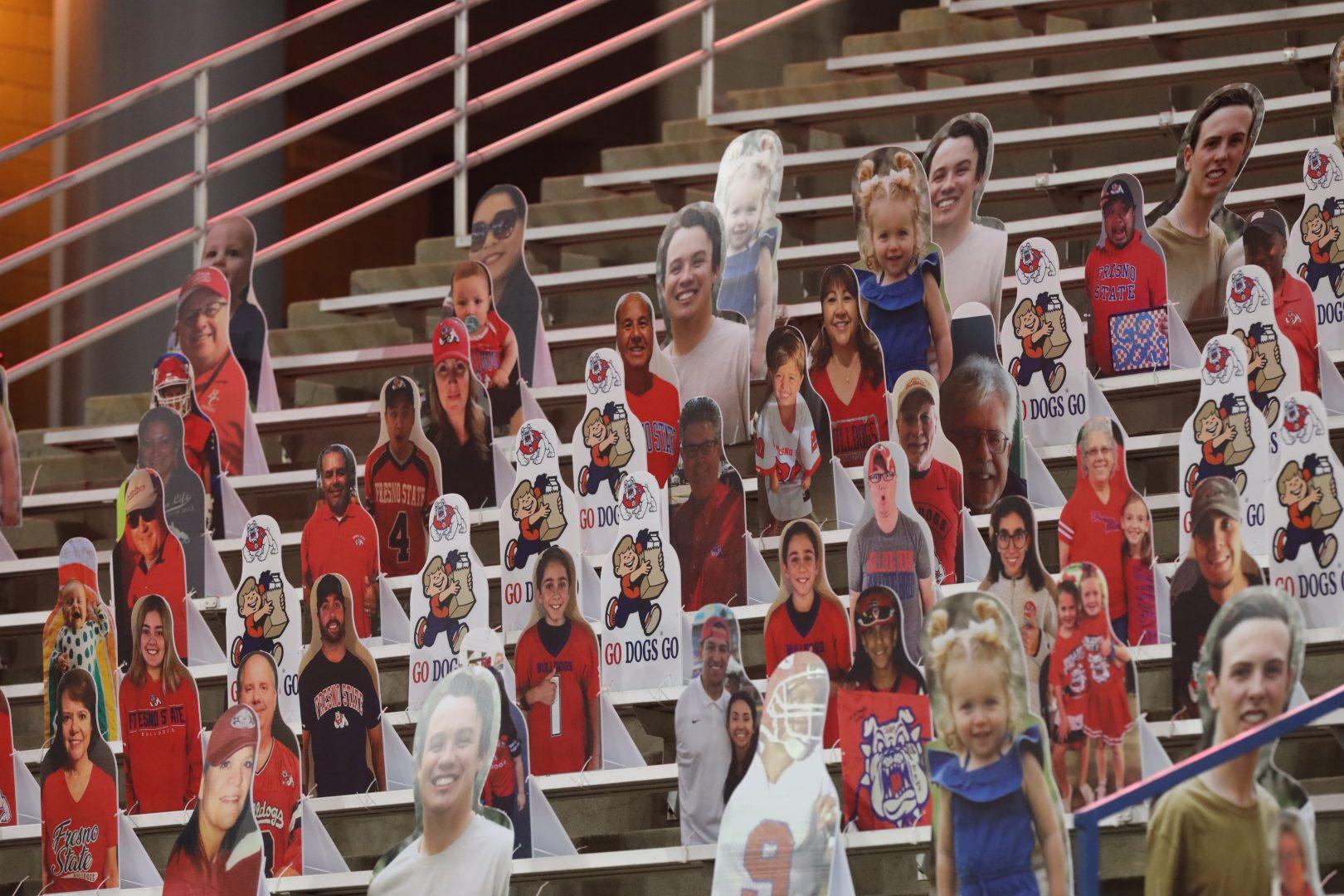
Strategic Communications Assistant Taylor Martinez arrived in Seattle with the Fresno State softball team fresh off a 16-hour trip on March 12, 2020. The Bulldogs were just a day away from a pivotal conference clash with Boise State.
That’s when they got the phone call that changed their lives.
A Fresno State associate athletic director alerted Martinez, the sport information director for softball, that the team was supposed to get on the next flight back home.
The rest of the 2021 NCAA sports season was canceled.
“The girls were really emotional and rightfully so,” Martinez said. “I mean they’re having the season of their life, and the best season Fresno State has seen in a while.”
Headed into Boise, the Bulldogs held a 21-4 record and a No. 25 ranking in the national coaches’ poll. They defeated the No. 3 team in the country, Texas, and were favorites to win the Mountain West entering conference play.
But that all ended in a Seattle airport. A new reality was set to begin.
“We were on our layover in the Seattle airport and I just remember that was when I realized this was different,” Martinez said. “Coronavirus had hit Seattle first in the U.S, so when we landed in that airport, we all had masks and things like that, but that was the first time I actually saw people socially distancing and sitting away from each other.”
“It had such an eerie feeling to it.”
On the flight back to Fresno, there were questions racing through Martinez’s mind. What was next for the team? How would COVID-19 affect workers like her in the sports industry?
“I remember looking out the [plane] window and thinking what does this mean for all of us,” Martinez said. “What does this mean for everyone working in this industry and what if sports aren’t on for a long time? What are we going to do?”
Martinez has worked for Fresno State Athletics since 2015 when she interned with the communications staff. She gradually undertook lead communications duties for women’s soccer, softball, swim & dive, water polo and men’s tennis. She also occasionally assisted with men’s basketball and football.
“I haven’t really done anything else… this is our life from August through May,” Martinez said. “We’re working every single weekend. We see our co-workers. We see our coaches. We see our athletes more than we see our own friends and our own family. We’re used to being, ‘Go, go, go’ and hosting tournaments and going on the road the next weekend and never really slowing down.”
But when collegiate sports went from traveling at breakneck speed to a staggering halt, communications workers like Martinez had nothing to do — and therefore, no job to go to.
Martinez was furloughed for six months — from June 1 until the start of the new year.
“I grew up here, I’m from here, I went to college here, and I started working here while I was in college,” Martinez said. “This is my home and it was hard to think this wouldn’t be my home anymore.”
Fresno State Athletic Director Terry Tumey called Martinez personally and told her the department would try its best to bring her back. During this period of uncertainty, Martinez gained a new outlook on life that she’s kept with her now that she’s returned with softball, soccer and water polo in full swing.
‘For everyone, we all get so caught up in ourselves and what we’re doing,” Martinez said. “I think having that break humbled us all to think about how this world is such a big place. There’s so many other people to worry about, family to worry about, friends to worry about, health to worry about… I think it just put so many things in perspective for so many people.”
— Gabriel Camarillo
Written by Gabriel Camarillo, Jesús Cano, Brooke Chau, Edward Lopez, Peter Lopez and Trevor Widger. Zaeem Shaikh made a contribution to this story.




